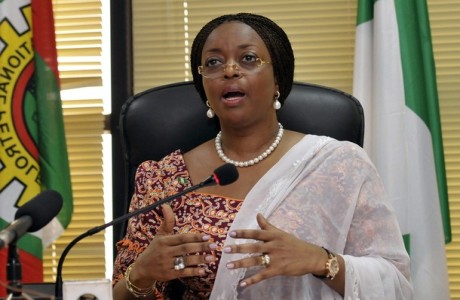The Central Bank of Nigeria (CBN) at the weekend declared that a total $1.34 billion (N201 billion) was spent on petroleum product imports in the first quarter of the year as a result of the demand pressures in the foreign exchange (forex) market.
Nigeria, Africa’s biggest crude exporter depends on importation for about 70 per cent of the 33 million litres refined product due to inefficient capacity of refineries
But CBN governor, Lamido Sanusi stated that while total forex supply to the Wholesale Dutch Auction System (WDAS) was $5.145 billion between January and March 16, demand was $6.815 billion.
Sanusi, who read out to reporters the communiqué of the Monetary Policy Committee (MPC) meeting in Abuja, recalled that the Naira/Dollar exchange rate opened on February 1 at N151.85 to $1 and closed at N152.52 to $1 on March 17, a depreciation of 67 kobo or 0.44 per cent.
He noted that the premium between the rates at the WDAS and other segments of the market widened towards the end of the review period, reflecting a sharper depreciation in non-WDAS segments of the foreign exchange market.
Given strong oil sector fundamentals, this trend is likely to be temporary, the MPC stressed, urging the CBN to continue to pursue the strategy of maintaining exchange rates stability to contain inflation.
The MPC welcomed the recent build-up of foreign reserves owing to increased oil output and prices, noting that the reserves rose by $2.82 billion to $35.16 billion on March 16, from $32.34 billion in December last year.
It reiterated that the solution to reserves depletion lies in the implementation of reforms in industrial and trade policies to reduce dependence on imports.
The MPC noted the positive growth outlook in the near to medium term but expressed concern over the heightened risk of inflation following from the proposed high expenditure outlay of the government in the budget this year, especially amid rising global food and energy prices.
It had previously emphasised the need for fiscal prudence and drawn attention to the rising trend of domestic debt.
The proposed expenditure outlay, it added, negates the initial sentiment for fiscal retrenchment which would have supported monetary policy effectiveness, saying the current fiscal stance is not consistent with the drive for stability in exchange rates, prices, and interest rates.
Unless the fiscal stance is reserved, the economy would have to bear a high cost in terms of pressure on foreign reserves, high interest rates and inflation.



